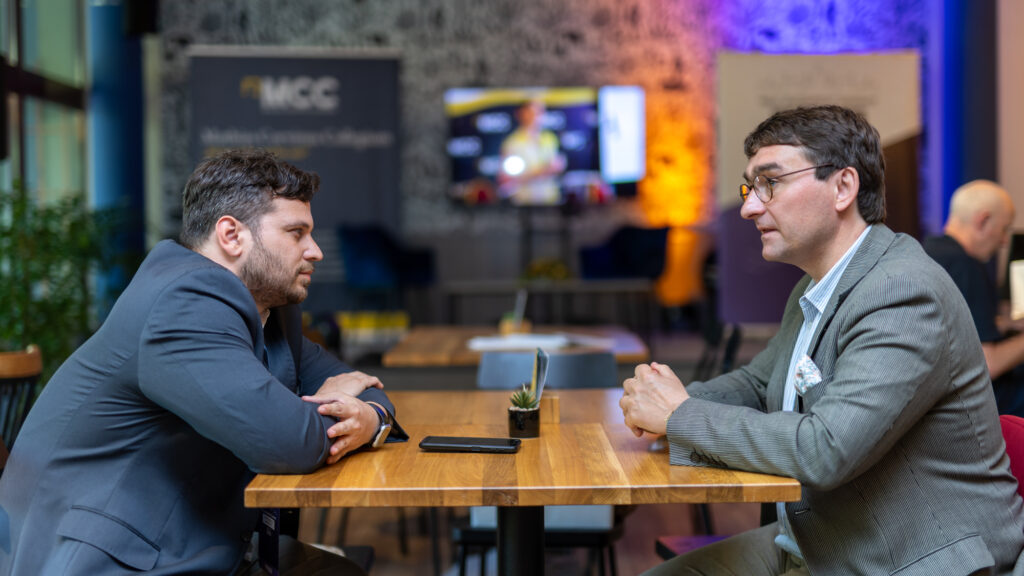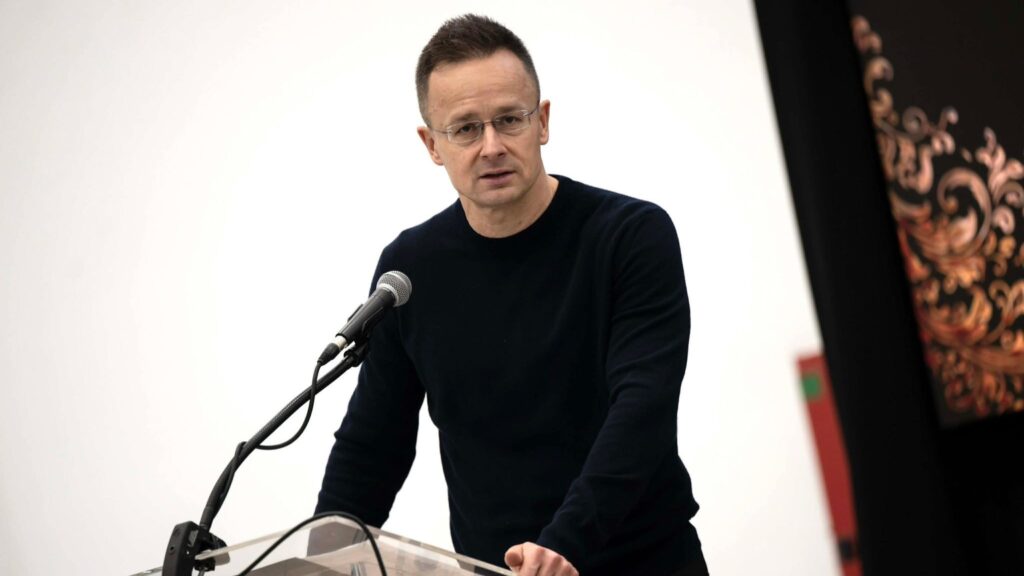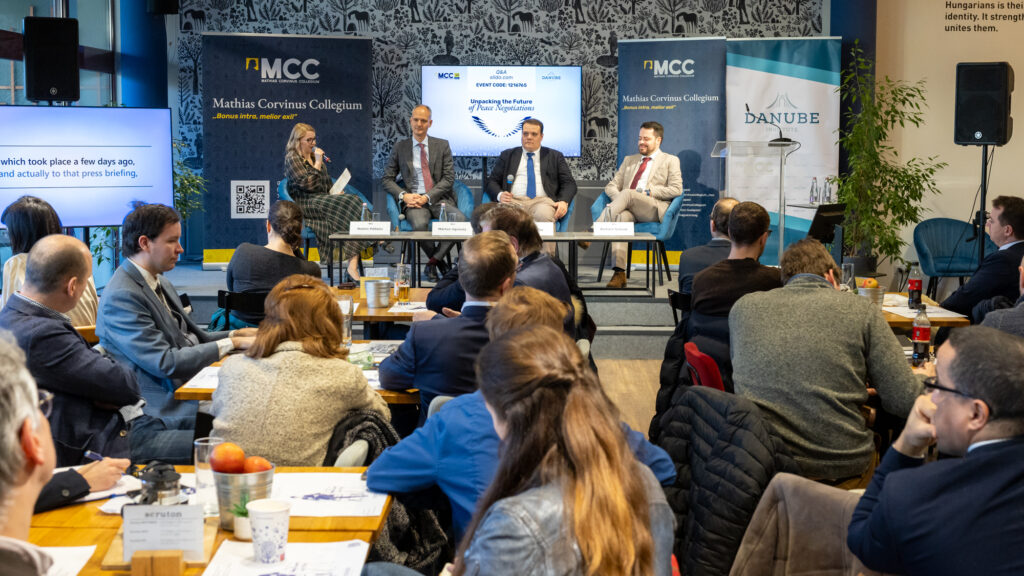Dr Mikołaj Sławkowski-Rode is a Senior Research Fellow in Philosophy at the Humanities Research Institute, University of Buckingham, and Director of Graduate Research in Philosophy at the University of Buckingham in the United Kingdom. He spoke at a panel at the Mathias Corvinus Collegium’s Budapest Summit on Technology and Society last week, where he was gracious enough to sit down with Hungarian Conservative for an exclusive interview on how new technologies have affected teaching and learning.
***
I’ve just listened to you on a panel about growing up in a digital age, and I remember the first words out of your mouth when you took the mic were: ‘the front has collapsed,’ and, I believe: ‘the war has been lost.’ I’m still not sure what you meant by that. Can you elaborate on that please? What were you referring to precisely?
Yes. So, I think that there are definitely adverse consequences of the proliferation of online technologies in communication, in how our work is organized, and essentially pertaining to all areas of our lives. And lots of people are very negative about these consequences and suggest ways of rolling back the clock, as it were. But I think that’s impossible. That’s what I meant.
I think if you see it as a front line to be fought over, the front has collapsed and there’s nothing more really to be done except accepting the defeat and trying to deal with the consequences and the landscape that we have now. I think that this technology is here to stay and the way that it’s changing our life is going to be permanent. So I think it’s slightly naive to think that we can somehow go back on what has happened and return to the forms of life and the ways of communicating and the ways of working that we remember from the 20th century.
I grew up in a home without a computer until I was in fifth grade. Is my life experience drastically different from somebody who now has a screen in front of them from basically birth?
Yeah, I’m sure, of course, in many ways. But again, so is the life of someone who has grown up without a TV in their house different from someone who has grown up with a TV in their house. That change came sort of roughly in the middle of the 20th century. And then earlier, in the interwar period, the big change was growing up with or without a radio in your house. And then even before that, growing up with a house that does have a gramophone that can play records and without a gramophone that can play records. So I think those are definitely changes, but I also think the particular change that each of these inventions brings and its ubiquity in society brings is in itself less impactful or has less consequence in terms of the intergenerational experience of growing up and of fundamental formation that we undergo as children and teenagers and then young adults.
The main thing is how quickly the changes now occur. I mean, this is nothing original at all, but I think there was much, much more continuity between the generations before the great technological advances of the first half of the 19th and then the 20th centuries, which have essentially created a landscape in which each generation has a very different world in which they grow up. And so I think it’s not the inventions themselves that create the problem, but rather the enormously quick pace of the advance of technology that creates all these social tensions and all these generational differences.
The idea of ‘digital nativism’ was brought up multiple times during the conference. And most labelled it as a fallacy, they disagreed with it as a concept. For example, Glenn Fahey from Australia told the audience in the morning panel that the way humans learn has not changed in that brief period of time since these new technologies have been introduced. So the fundamental way of learning has not changed, even though technology has changed. Do you agree with him?
On some levels, of course, learning is still the same process. However, how the process unfolds has changed. For example, many of the students who take my courses are using online versions of books rather than hard copies. And the way that this changes the way that they learn is really dramatic. So when I was studying, you would need to read large sections of the book that you're studying or the book that is discussing the topic that you're currently working on. But now, no one does that. I mean, of course, it was never the case that if you're writing an essay to be graded and discussed in a week, you would be reading all the sources back to back. You're going to be finding the places that are most relevant and in most cases, even the tutors would give you the relevant page numbers. But this has been even more narrowed down by working with digital copies because now when you are looking at what the particular author or text says about topic X or Y, you just word search topic X or Y.
I would consider that an advancement.
In a way of course—it saves time. But it also saves you from learning the topic you are studying. You can’t escape from learning requiring time. Students go through only the places or sometimes only the sentences where this topic appears. I've seen students do this over and over where, when they're writing an essay quickly, they quote a sentence in which the keyword appears without any context, and because of this they completely misinterpret what the author is trying to convey. Now, this is because students are now approaching this tool as a solution to the problem. The essay is a problem to be solved and not the topic of the essay something to be addressed.
And the online tools, or the digital tools, help the students see this in that way more or reinforce the idea that you can think about an essay in this way. Of course, AI is making people lean even more in that direction: seeing the essay as a task to be solved rather than the topic it addresses. So, I think that is, of course, something that tutors should be mindful about and it is partly their job to make sure that the stress is on the topic. But at the same time, just this very little thing of working with hard copies meant that you had to read at least the immediate context of all the statements that are on your topic. And that meant that you could already work on the topic of the essay at a more advanced level, rather than starting with the very basics: like this is obviously not what the author means; and taken out of context, this sentence doesn't tell you, in fact, or what the position is, but gives you a very skewed idea of what the essay is about.
Here in Hungary, there is a new regulation that dictates that even high school students have their phones and their mobile devices taken by the school at the beginning of the school day and they are not given back until the end, which caused quite a bit of controversy. Do you agree with this regulation?
Yeah, absolutely. I think I'm a big fan of that regulation. I think it should be ubiquitous, really. One thing that smartphones and computers in the classroom do is that students are constantly fact-checking what is happening in the class. Some people are quite enthusiastic about it. They think about the classroom as a place of collaboration between the teacher and the students. Therefore, they believe that the fact that the students are able to quickly look up what's going on is an advantage rather than a disadvantage. But I think it changes the dynamic of the classroom in a very undesirable way in that the students have access to all the information in the world and the teacher is up by the board being examined about it without themselves staring at the screen all the time. And I think this is bad for two reasons.

The first reason is I think that in fact this makes it harder for teachers to teach and for students to learn. The fact that you have been able to look up something that your teacher doesn't know may give you an impression that you now know the topic, perhaps better than the teacher, but in reality of course you don't and you're going to very quickly forget what you've looked up not knowing the context in which that information is relevant in the given. And second—I think it's an even more important issue—the fact that the teacher doesn't know something, even in their own area, for example, if a history teacher mistakes a date that they're giving the students, is not as important as a sense of authority that teachers should have in the classroom. I think in a way this is of course provocative, but in a way, I think the information or the knowledge that they're able to pass on is at least as important as, if not more, than a sense of authority that they are able to bring because that authority is something that facilitates learning.
We learn from authorities. We can't check everything ourselves and then when we are fact-checking online we are only deferring to sometimes lesser authorities than the one that we are learning from. So the illusion of fact-checking and undermining authority by evidence that is created by these resources is, I think, really damaging to the process of actually learning, which is always authority-dependent. That doesn't mean this authority needs to be followed blindly. Of course, one authority can trump another or we can realize that someone who we've taken as an authority before is no longer an authority or is a lesser authority on a given topic than someone else. But we can't see someone else as a greater authority than our high school teacher unless we have seen our high school teacher as an authority in the first place. In a world without any authority, I am afraid that learning is going to deteriorate. And it has, quite visibly, already.
Related articles:







